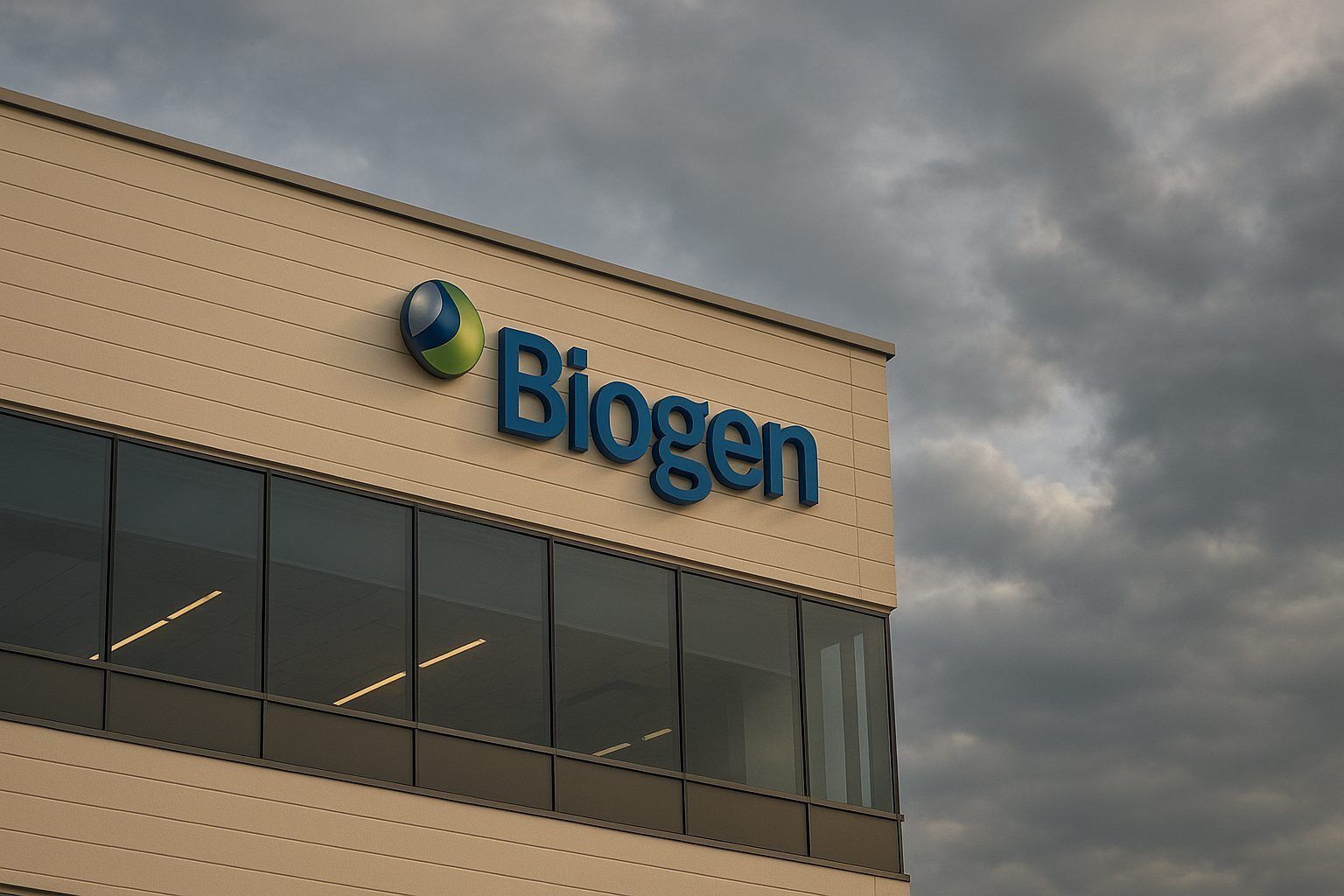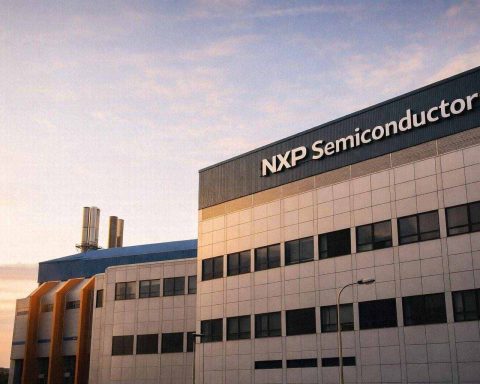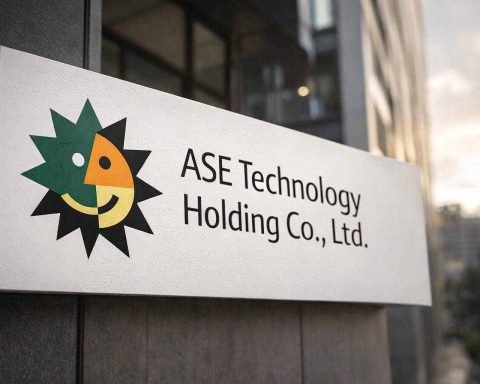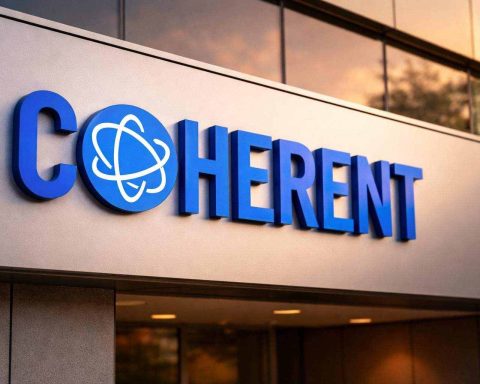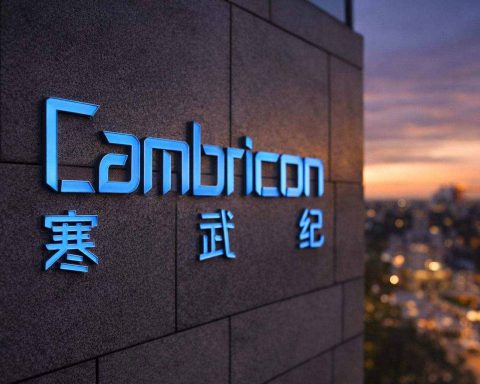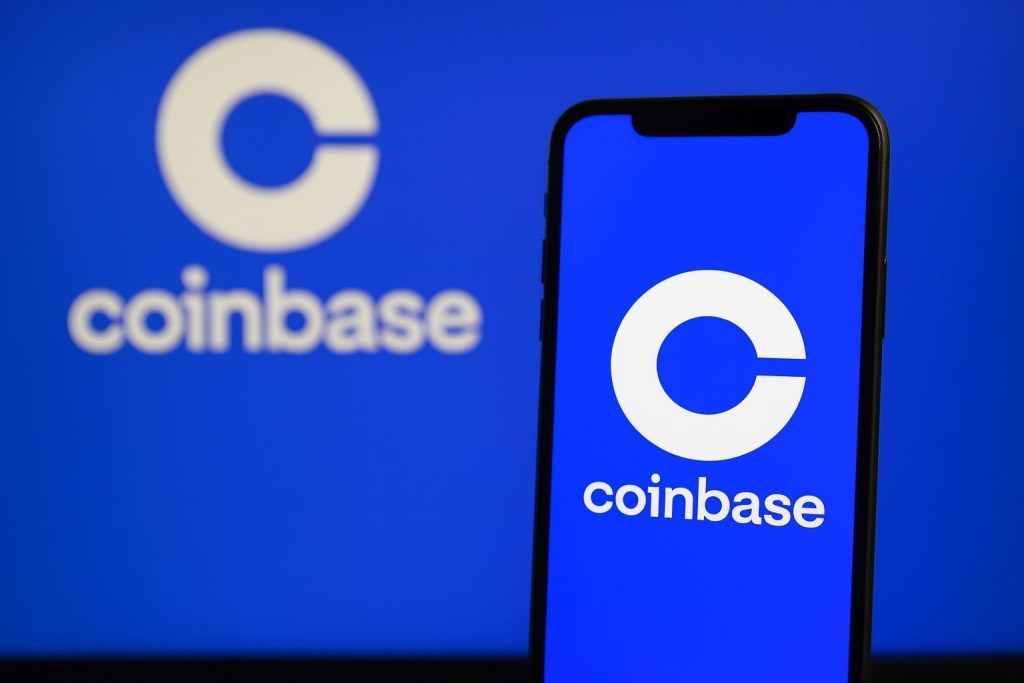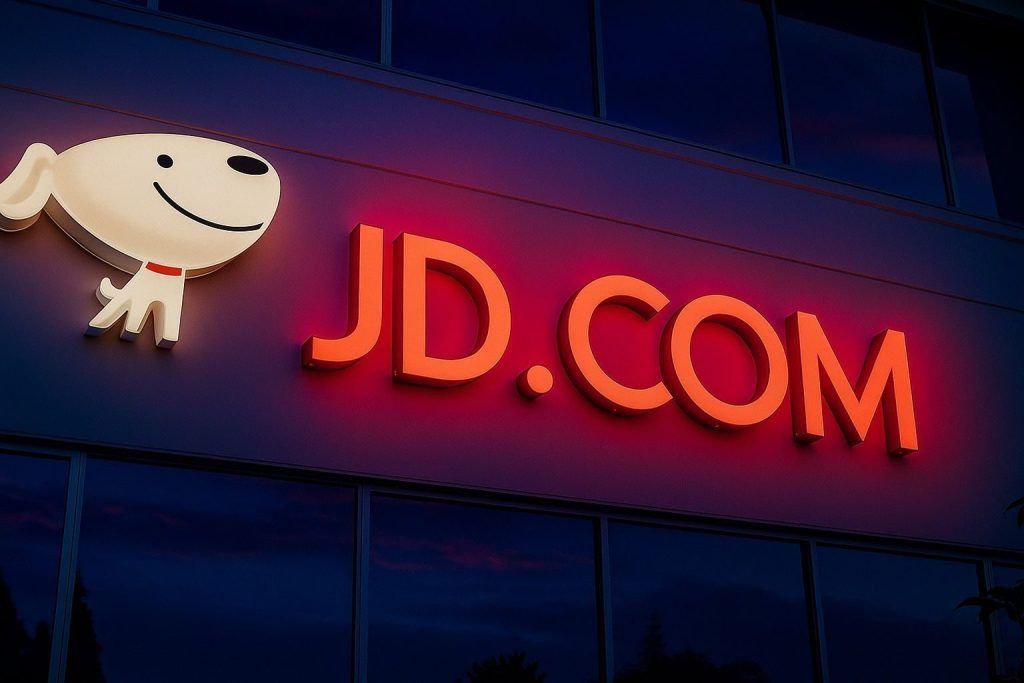Biogen Inc. (NASDAQ: BIIB) shares surged to fresh 52‑week highs on Monday, November 24, 2025, as investors reacted to a high‑profile Alzheimer’s drug failure at Novo Nordisk and a new immunology partnership with Dayra Therapeutics.
By the closing bell, BIIB stock finished at $177.42, up about 1.2% from Friday’s close of $175.30. The stock traded as high as $185.17 intraday, with volume just over 2.0 million shares, roughly in line with its recent average. 1
Over the last six months, Biogen has climbed roughly 40%, and about 11% over the past year, reflecting renewed confidence in its Alzheimer’s and neurology franchise. 2
BIIB Stock Price Action on November 24, 2025
Key trading stats for BIIB on Monday: 1
- Open: $177.65
- High: $185.17
- Low: $175.63
- Close: $177.42
- Change vs. Friday: +$2.12 (+1.2%)
- Volume: ~2.07 million shares
Intraday, Biogen briefly traded near $183–185, rising almost 5–6% at its peak, helped by pre‑market gains as traders digested disappointing data from Novo Nordisk’s Alzheimer’s program. A Reuters‑sourced note reported Biogen shares were up nearly 5% to about $183.51 in premarket trading on the back of the news. 3
An Investing.com report flagged that BIIB hit a new 52‑week high around $177.37 during the session and highlighted that the stock has jumped more than 39% over the past six months, while still trading at a modest ~16× trailing earnings and sporting a strong free cash flow yield of roughly 9%. 2
Why BIIB Is Moving: Novo Nordisk’s Alzheimer’s Setback
The single biggest catalyst for BIIB stock today is Novo Nordisk’s failed Alzheimer’s trials with oral semaglutide (Rybelsus), a GLP‑1 drug better known from diabetes and obesity treatments like Ozempic and Wegovy.
- Novo said its Evoke and Evoke+ Phase 3 trials in early‑stage Alzheimer’s failed to meet their primary endpoint, meaning semaglutide did not significantly slow cognitive decline versus placebo. 4
- Reuters reported that Novo shares fell sharply on the news, while Biogen shares rose about 3% after the announcement. 4
Why does a rival’s failure boost BIIB? Because it removes a potential future competitor to Biogen and partner Eisai’s anti‑amyloid antibody Leqembi, one of only two approved disease‑modifying Alzheimer’s drugs in the U.S., alongside Eli Lilly’s Kisunla. 4
A BioSpace analysis summed up the sentiment from Wall Street analysts: 5
- Jefferies called the semaglutide failure the removal of an “overhang” on Biogen and the anti‑amyloid class, potentially clearing the way for faster Leqembi uptake.
- Stifel and RBC similarly described Novo’s program as a “modest” or “perceived” overhang, arguing that failure reinforces the position of anti‑amyloid antibodies as the current standard in disease‑modifying Alzheimer’s therapies.
- A separate Reuters piece quoted analysts saying the failure “strengthens the case for Biogen’s Leqembi”, even as GLP‑1s could be revisited for Alzheimer’s in the future with more potent or better‑tolerated molecules. 6
In short: the competitive threat from GLP‑1 Alzheimer’s drugs has faded for now, and investors are recalibrating Alzheimer’s exposure back toward companies like Biogen and Lilly that already have approved therapies.
New Immunology Deal With Dayra Adds Another Bullish Catalyst
On the same day, Biogen announced a research collaboration with Dayra Therapeutics, adding a second major catalyst for BIIB stock.
According to Biogen’s partner‑generated press summaries and StockTitan/Nasdaq coverage: 7
- Biogen and Dayra will co‑discover and optimize oral macrocyclic peptides aimed at priority immunological targets.
- Dayra receives a $50 million upfront payment, with Biogen gaining options to acquire development candidates and paying additional milestone and option payments per program if they advance.
- Biogen will lead later‑stage development, manufacturing, and commercialization.
- The upfront payment is expected to be recorded as acquired in‑process R&D in Q4 2025, and Biogen has already baked this into its updated 2025 guidance.
Macrocyclic peptides are an emerging modality that aim to combine the selectivity and potency of antibodies with the convenience of a pill. Adding this platform broadens Biogen’s early‑stage immunology pipeline, complementing its neurology and rare‑disease strengths. 8
This deal also fits with CEO Chris Viehbacher’s stated strategy of pursuing more early‑stage partnerships to replenish Biogen’s pipeline, which he reiterated on the Q3 2025 earnings call. 9
Leqembi Momentum: Subcutaneous Dosing and New Data Coming
Beyond today’s headline spike, part of the BIIB bull story is the multi‑year ramp of Leqembi. Several recent developments are relevant for investors:
Subcutaneous Leqembi (Leqembi IQLIK)
- A weekly subcutaneous maintenance formulation of Leqembi won FDA approval in August 2025, offering a more convenient at‑home option versus bi‑weekly IV infusions. 9
- The Alzheimer’s Association has highlighted this approval as a potential access and convenience win for patients, while still stressing the need for careful safety monitoring. 10
New Data at CTAD 2025
Biogen announced that at the Clinical Trials on Alzheimer’s Disease (CTAD) conference (Dec. 1–4, 2025), it will present multiple new datasets on lecanemab, including: 11
- Safety and efficacy of subcutaneous lecanemab for initiation dosing, not just maintenance.
- Analyses suggesting additional long‑term clinical benefits from continued treatment beyond plaque clearance.
- Real‑world safety and outcomes from observational studies in Japan and from the ALZ‑NET registry in the U.S.
- New data on BIIB080, an antisense therapy targeting tau, another core Alzheimer’s pathology.
These presentations are important because they may:
- Strengthen physician confidence in Leqembi’s long‑term benefit–risk profile.
- Support broader payer coverage by highlighting time savings and functional outcomes.
- Validate Biogen’s next‑generation Alzheimer’s pipeline beyond Leqembi itself.
Don’t Forget the Risks: Safety Scrutiny and Monitoring Requirements
The Alzheimer’s franchise is not a one‑way street higher. The safety profile of Leqembi remains a central risk for BIIB:
- In August 2025, the U.S. FDA required additional earlier MRI scans for patients on Leqembi after identifying six deaths early in treatment associated with amyloid‑related imaging abnormalities with edema (ARIA‑E). 12
- Prescribing information now recommends MRI monitoring between the second and third infusions, on top of previously recommended scans before later doses.
These changes:
- Increase operational complexity for treatment centers.
- May slow adoption in real‑world settings with limited MRI capacity.
- Could fuel continued debate over the risk–benefit balance of anti‑amyloid drugs.
Investors should assume ongoing regulatory and media scrutiny around serious side effects, which can translate into sentiment swings for BIIB stock.
Recent Fundamentals: Q3 2025 Earnings and Guidance
Biogen’s move higher is also grounded in improving fundamentals:
- For Q3 2025, Biogen reported adjusted EPS of $4.81, well above Wall Street expectations around $3.88. 9
- The company trimmed its 2025 EPS guidance to $14.50–$15.00 per share (from $15.50–$16.00), mainly because it expects about $1.25 per share in R&D‑related charges tied to deals like Alcyone and other pipeline expansion. 9
Key segment highlights from the quarter: 9
- Multiple sclerosis franchise: Sales were roughly $1.06 billion, actually up ~1% year‑over‑year and ahead of consensus estimates, despite long‑running worries about erosion.
- Rare disease portfolio (including Spinraza and Skyclarys): About $533 million in sales, up nearly 8% year‑over‑year.
- Leqembi: Global sales grew more than 80% year‑over‑year to around $121 million for the quarter, with U.S. sales near $69 million.
At today’s close of $177.42, BIIB trades at roughly 12× the midpoint of 2025 EPS guidance (about $14.75), which is relatively modest for a large‑cap biotech with an approved Alzheimer’s therapy and a broad neurology/rare‑disease portfolio. 1
Pipeline and M&A: Alcyone and Beyond
Biogen has been actively reshaping its pipeline and modalities mix:
- Alcyone Therapeutics acquisition: Completed on November 14, 2025, giving Biogen full control of Alcyone’s ThecaFlex DRx intrathecal delivery system for central nervous system therapies. 13
- This strengthens Biogen’s drug‑delivery capabilities in the CNS, which could enhance the value of existing and future neurology assets.
- Earlier in 2025, Biogen also acquired Human Immunology Biosciences (HI‑Bio), bolstering its immunology pipeline, and licensed a Vanqua Bio immunology program for up to $1.06 billion. 14
On the Q3 earnings call, management said they expect to announce at least one or two additional research‑stage deals by the end of 2025—today’s Dayra partnership clearly fits that playbook. 9
How Wall Street Views BIIB Stock
Analyst sentiment toward BIIB has been steadily warming in recent months:
- Data compiled by Investing.com show a consensus “Buy” rating from around 29 covering analysts, with most rating the stock Buy or Hold and very few outright Sells. 15
- The average 12‑month price target sits near $178 per share, with estimates ranging from about $130 on the low end to $260 at the high end. 15
That means Monday’s close is roughly in line with the current average target, but still well below the most bullish scenarios that assume stronger‑than‑expected Leqembi uptake, success of follow‑on Alzheimer’s and neurology programs, and continued capital‑efficient deal‑making.
Some recent highlights from the analyst community include: 16
- Target upgrades into the high‑$100s and low‑$200s as the stock rallied off its 2024 lows.
- Commentary that the market had been over‑penalizing BIIB for early Leqembi launch growing pains and pipeline uncertainty, while underappreciating the value of its broader neurology and immunology franchises.
Key Things for BIIB Investors to Watch Next
Looking beyond today’s move, here are the main catalysts and risk factors BIIB shareholders and watchers should keep on their radar:
- CTAD 2025 (Dec. 1–4)
- New subcutaneous lecanemab data and long‑term benefit analyses could be a near‑term sentiment driver for the stock. 11
- Real‑world Leqembi uptake
- Watch for updates on patient numbers, site activation, and payer coverage, especially as safety‑driven MRI requirements and logistical hurdles play out in practice. 12
- Kisunla and other competitor data
- Lilly’s upcoming TRAILBLAZER‑ALZ‑3 readout in preclinical Alzheimer’s over the next couple of years could reshape perceptions of the entire anti‑amyloid class, including Leqembi. 5
- Further BD and partnerships
- Additional early‑stage deals (like Dayra and Alcyone) will determine how robust Biogen’s post‑Leqembi pipeline looks heading into the late 2020s. 7
- Regulatory and safety headlines
- Any new safety signal or regulatory change around Leqembi or other CNS assets can be material for sentiment and valuation. 12
Bottom Line on BIIB Stock Today
On November 24, 2025, BIIB stock rallied to new 52‑week highs as the market reassessed Alzheimer’s competitive dynamics and rewarded Biogen for expanding its pipeline with an innovative immunology collaboration.
- The Novo Nordisk Alzheimer’s failure removes a high‑profile threat and strengthens the narrative around Leqembi and Kisunla as the only approved disease‑modifying therapies today. 4
- Biogen is leaning into growth, striking deals like Dayra and Alcyone while continuing to generate strong cash flow from its MS and rare disease franchises. 7
- At around 12× 2025 EPS guidance and mid‑teens multiples on trailing earnings, BIIB now trades closer to its historical norms, rather than the depressed multiples seen earlier in the year. 1
For investors, BIIB is increasingly a pure‑play bet on disease‑modifying neurology, particularly Alzheimer’s, with meaningful upside if Leqembi adoption accelerates—but also significant safety, regulatory, and execution risk.
This article is for information and education only and does not constitute investment advice. Always do your own research or consult a licensed financial adviser before making trading or investment decisions.
